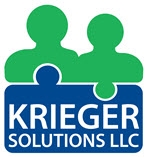Evaluation & Assessment
It’s essential to understand where you are and where you’ve been if you want to develop a successful plan for the future. It’s critical to know what has worked well in the past and where things went off track. Most leaders are too busy dealing with today and what’s coming next to take the time to carefully assess where they’ve been and how well specific strategies were working.
We develop simple, common sense assessments and evaluations. We are not research scientists and we don’t design processes that take huge amounts of time or resources. If you want a highly detailed complex assessment of complex processes… we’re the wrong company for you. But if you want to get a handle on what’s going on, what’s working and what needs to be changed… we can help.
- We look for easy to measure indicators that would be strong predictors of success, rather than trying to measure some core factor that is very difficult to isolate.
- We look for common sense solutions that derive from a consensus of skilled and knowledgeable people.
- We look for incremental knowledge and direction and continually build on that rather than trying to solve the entire process at once.
- We develop useful tools for evaluating people and processes.
If you’d like to get a better handle of some aspect of your operation or would like a better way to evaluate your staff, give us a call – 518-895-2939 or info@KriegerSolutions.com
Program Evaluation Projects
Krieger Solutions is currently consulting on two interesting evaluation projects.
One is with the NYS Independent Living Council to help them increase the specificity and impact measurement of projects undertaken as part of a three year statewide plan for independent living. This includes conducting the evaluation and providing training and coaching in evaluation to members of the Council and to various subcommittees. It also includes developing a needs assessment go guide future planning and assisting with the development of outcome objectives for these plans.
The second is with the New York and New England Yearly Meetings of the Religious Society of Friends (Quakers) to help them design an evaluation for a project to foster more vibrant multigenerational meetings (congregations). The initial stage involves trying to identify the core elements that attract, engage and retain participants of all ages in local meetings. The evaluation will then measure how well the project enhances these elements and if in fact that leads to more vibrant intergenerational meetings.
